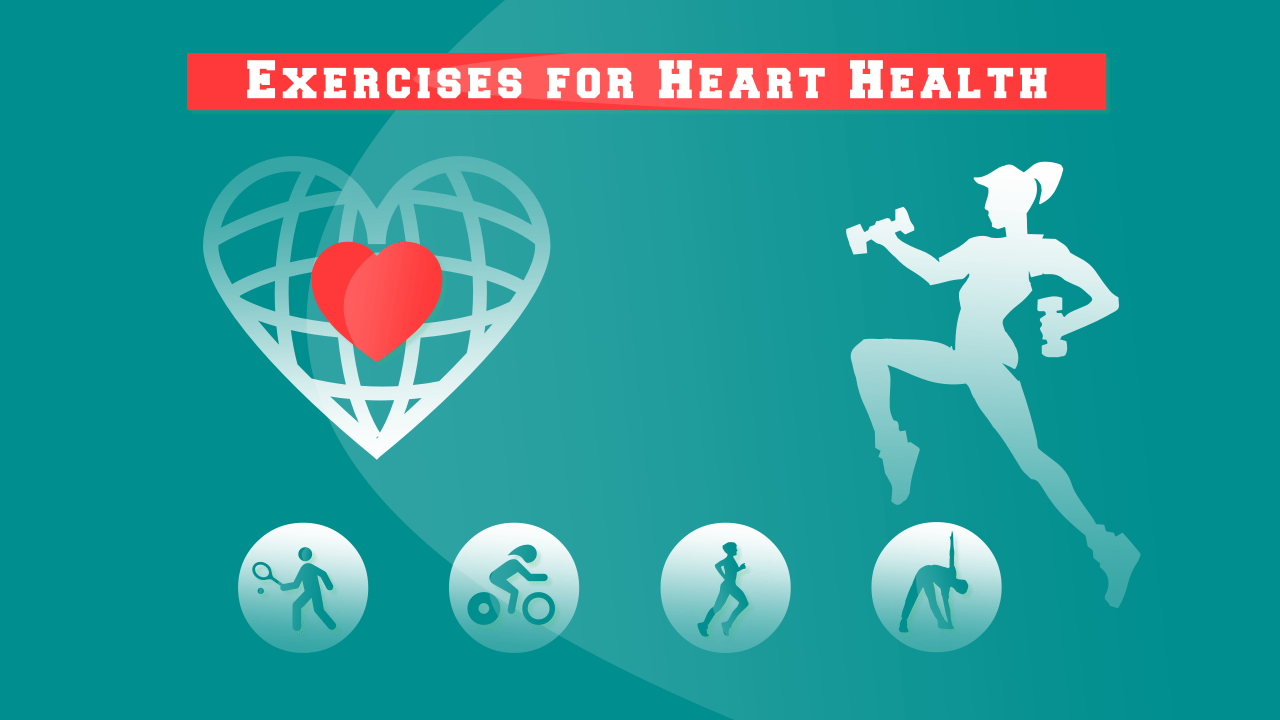Contents
Cardiovascular diseases are one of the diseases that cause the most death in the world. It is very important to pay attention to lifestyle in order to protect against cardiovascular diseases caused by genetic and environmental factors playing a role together.
A healthy diet and regular exercise are the key to preventing cardiovascular diseases. Many Cardiologists and Cardiovascular Surgeons talk about how important an exercise plan is for the heart. It is important to create an exercise plan and make it a lifestyle, both for individuals who want to protect their heart and for those with an existing heart disease.
Health problems such as diabetes, insulin resistance, hypertension, and high cholesterol are among the biggest risk factors for catching heart diseases. Not paying enough attention to the treatment process of these diseases and not fulfilling the treatment requirements by the patient leads to the progression of the disease.
Exercise for Heart Health
Regular exercise has a very important effect on preventing the development of such diseases, which are considered as risk factors, and preventing their progression and affecting the heart.
In individuals who exercise regularly, obesity can be prevented by providing weight control, and insulin resistance can be prevented with the reduction of adipose tissue.
The development of hypertension can be prevented or the time of its onset delayed.
High cholesterol can be prevented, thus preventing vascular occlusion.
By providing blood sugar regulation, the negative effects of diabetes on the heart and vessels can be eliminated.
At the same time, the severity of the disease can be reduced by strengthening the heart muscle with the help of appropriate exercise types recommended by the physician in heart failure patients.
Considering all these positive effects, it can be clearly seen how important sports activities are for heart health.
For Whom Is Regular Exercise Necessary?
- For healthy individuals, these can be professional sports activities or they can be performed in many ways such as walking, swimming or simple exercises.
- The exercise plan that individuals with any cardiovascular disease will create in consultation with their physicians will be the right choice for these individuals.
- Many cardiological progressions can be stopped or slowed by regular exercise and a healthy diet.
- At the same time, ideal body mass can be reached with a personalized nutrition and exercise plan that will be recommended for people with weight problems. This is very effective in protecting heart health and improving the course of heart diseases.
For all these reasons, besides cardiovascular diseases, every individual who wants to protect his health should create an appropriate exercise plan and adapt to it.
Which Heart Disease People Should Exercise?
Cardiovascular diseases are a group of diseases that can occur as acute diseases such as heart attack or stroke, or as chronic diseases that appear gradually, especially in advanced ages, and continue throughout life.
Cardiovascular diseases in general;
- Coronary artery diseases (heart failure, heart attack and heart rhythm disorders): In addition to genetic predisposition, it is in a very close relationship with physical activity and diet. Conditions such as high cholesterol and fat intake, unhealthy and unbalanced diet, obesity, smoking, sedentary life and lack of exercise habits significantly increase the probability of developing coronary heart diseases.
- Peripheral vascular diseases (atherosclerosis or hardening of the arteries),
- Heart valve diseases,
- Congenital heart diseases can be grouped as.
In order to protect heart health and general health, all individuals, especially individuals with genetic predisposition, should be careful about risk factors, exercise regularly as much as their clinical status allows, or stay active in daily life.
What Exercises Should Be Done for Heart Health?
For individuals who decide to exercise in order to protect their heart health, the primary issue that should be considered is the health status.
It is very important for individuals with acute or chronic cardiovascular disease or different diseases to consult their physician before starting to exercise and to get information about which exercises they can do.
The recommended types of exercise for people who do not have any health problems and want to protect their heart health are aerobic exercises that include movement.
In addition, strength exercises such as yoga and stretching can be added to the exercises to be done.
Such brisk exercises that are good for heart health ensure the work and development of striated muscles in the body. In this way, it helps to prevent cardiovascular diseases by strengthening the heart.
However, it is a fact that all kinds of exercise are beneficial for the body and therefore the heart. Therefore, people should practice the types of exercise that they enjoy doing and that they prefer.
While determining the intensity and frequency of exercises, the age of the individual, bone and joint health should also be considered.
In addition to moving in terms of heart health, the most important issue is that the exercises are brisk and that the exercise is continued throughout life. It is necessary to allocate at least 3-4 days a week and at least 30-40 minutes for exercise. While determining these frequencies, sustainability should be taken as a basis.
Regular exercise is necessary and important for existing heart patients as well as individuals who want to maintain their heart health. However, the type, frequency and duration of the exercises that these patients will do must be determined and followed by a physician.
The main exercises for heart health;
- Walking
- Yoga
- Swimming
- Cycling
- Strength training
- Stretching



What Should Be Considered While Exercising For Heart Health?
- While exercising for cardiovascular health, individuals who have any heart disease and practice the exercises recommended by their physician should regularly use the drugs prescribed for them, and should not exceed the periods specified by the physician in terms of intensity and duration of the exercises.
- For healthy individuals, the intensity and frequency of exercise can be determined individually. However, non-professional athletes or individuals who have not exercised continuously for a long time, forcing themselves by doing high-intensity exercise may damage the heart instead of protecting heart health. For this reason, it is ideal to start exercises with low-intensity exercises and a period of 40 minutes a day.
- Another important issue in terms of protecting heart health is the heart rate reached during exercises. Targeted heart rate in moderate-intensity exercise types is 50-70% of the maximal values appropriate for the age of the individual. While it may be recommended to set this as 50% for individuals who are new to sports, it should be between 70-80% for professional athletes and individuals who have been exercising for a long time.
- For individuals who cannot determine their heart rate during exercise, an exercise intensity at a level that can comfortably chat with someone next to them without breathlessness can be targeted.
What kind of diet should be planned for heart health?
In addition to regular exercise, nutrition is also extremely important for maintaining heart health. Individuals with chronic diseases such as cardiovascular diseases, hypertension, diabetes, kidney diseases should follow the nutrition plan prepared in line with the recommendations of their physicians and dietitians.
Since obesity patients also need to reach their ideal weight in terms of heart health, these individuals should first pass a health examination and then start a weight loss diet under the leadership of a dietitian.
Healthy individuals should create a healthy and balanced diet plan in order to protect and improve their heart health. For this, foods from all food groups such as meat, fish, chicken, vegetables and fruits, cereals, milk and its products, oils and oilseeds should be consumed in a balanced way.
Excessive salt and sugar consumption should be avoided, unpurified cereals should be preferred, and the fat and cholesterol content of the diet should be moderate.
Healthy cooking techniques such as boiling, steaming and baking should be preferred instead of unhealthy cooking methods such as frying and roasting.
In addition to these, the habit of having snacks should be acquired and consuming at least 2 liters of water a day should be made a habit.
“Page content is for informational purposes only. Please consult your doctor for diagnosis and treatment.”


